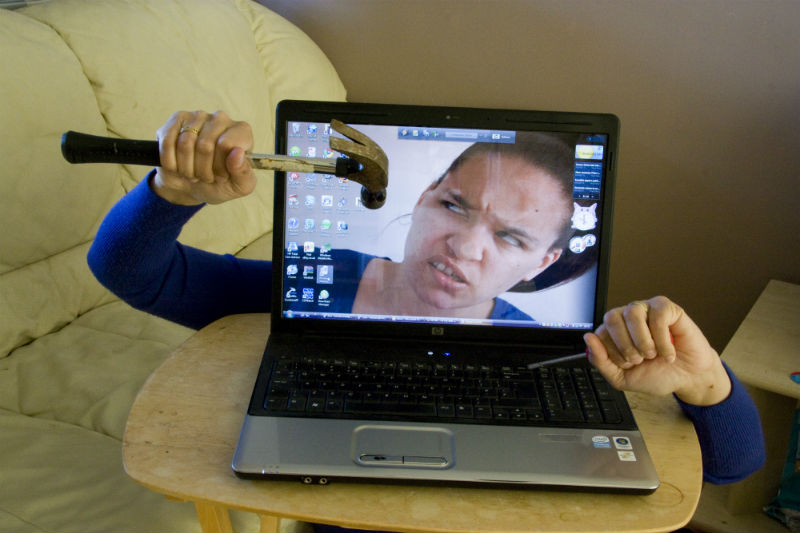
Anxious about the widespread consumption and spread of propaganda and fake news during [the US Presidential] election cycle, many progressives are calling for an increased commitment to media literacy programs. Others are clamoring for solutions that focus on expert fact-checking and labeling. Both of these approaches are likely to fail — not because they are bad ideas, but because they fail to take into consideration the cultural context of information consumption that we’ve created over the last thirty years. The problem on our hands is a lot bigger than most folks appreciate.
What Are Your Sources?
I remember a casual conversation that I had with a teen girl in the midwest while I was doing research. I knew her school approached sex ed through an abstinence-only education approach, but I don’t remember how the topic of pregnancy came up. What I do remember is her telling me that she and her friends talked a lot about pregnancy and “diseases” she could get through sex. As I probed further, she matter-of-factly explained a variety of “facts” she had heard that were completely inaccurate. You couldn’t get pregnant until you were 16. AIDS spreads through kissing. Etc. I asked her if she’d talked to her doctor about any of this, and she looked me as though I had horns. She explained that she and her friends had done the research themselves, by which she meant that they’d identified websites online that “proved” their beliefs.
For years, that casual conversation has stuck with me as one of the reasons that we needed better Internet-based media literacy. As I detailed in my book It’s Complicated: The Social Lives of Networked Teens, too many students I met were being told that Wikipedia was untrustworthy and were, instead, being encouraged to do research. As a result, the message that many had taken home was to turn to Google and use whatever came up first. They heard that Google was trustworthy and Wikipedia was not.
Understanding what sources to trust is a basic tenet of media literacy education. When educators encourage students to focus on sourcing quality information, they encourage them to critically ask who is publishing the content. Is the venue a respected outlet? What biases might the author have? The underlying assumption in all of this is that there’s universal agreement that major news outlets like the New York Times, scientific journal publications, and experts with advanced degrees are all highly trustworthy.
Think about how this might play out in communities where the “liberal media” is viewed with disdain as an untrustworthy source of information…or in those where science is seen as contradicting the knowledge of religious people…or where degrees are viewed as a weapon of the elite to justify oppression of working people. Needless to say, not everyone agrees on what makes a trusted source.
Students are also encouraged to reflect on economic and political incentives that might bias reporting. Follow the money, they are told. Now watch what happens when they are given a list of names of major power players in the East Coast news media whose names are all clearly Jewish. Welcome to an opening for anti-Semitic ideology.
Empowered Individuals…with Guns
We’ve been telling young people that they are the smartest snowflakes in the world. From the self-esteem movement in the 1980s to the normative logic of contemporary parenting, young people are told that they are lovable and capable and that they should trust their gut to make wise decisions. This sets them up for another great American ideal: personal responsibility.
In the United States, we believe that worthy people lift themselves up by their bootstraps. This is our idea of freedom. What it means in practice is that every individual is supposed to understand finance so well that they can effectively manage their own retirement funds. And every individual is expected to understand their health risks well enough to make their own decisions about insurance. To take away the power of individuals to control their own destiny is viewed as anti-American by so much of this country. You are your own master.
Children are indoctrinated into this cultural logic early, even as their parents restrict their mobility and limit their access to social situations. But when it comes to information, they are taught that they are the sole proprietors of knowledge. All they have to do is “do the research” for themselves and they will know better than anyone what is real.
Combine this with a deep distrust of media sources. If the media is reporting on something, and you don’t trust the media, then it is your responsibility to question their authority, to doubt the information you are being given. If they expend tremendous effort bringing on “experts” to argue that something is false, there must be something there to investigate.
Originally published as part of Points from Data & Society under a CC-BY-SA licence





Rate and Review
Rate this article
Review this article
Log into OpenLearn to leave reviews and join in the conversation.
Article reviews
I have to add that media literacy and alternative facts became step by step a norm in the classrooms.
Arguing AGAINST students with this kind of thinking processus is counter-productive because it's one of the basics of complotism (be against, you're with them, etc.)
A very good solution I observed in classrooms is -for example- doing exercices with teenagers like making their own newspaper. So they have to sort the sources and can gain an objective angle on all of that.